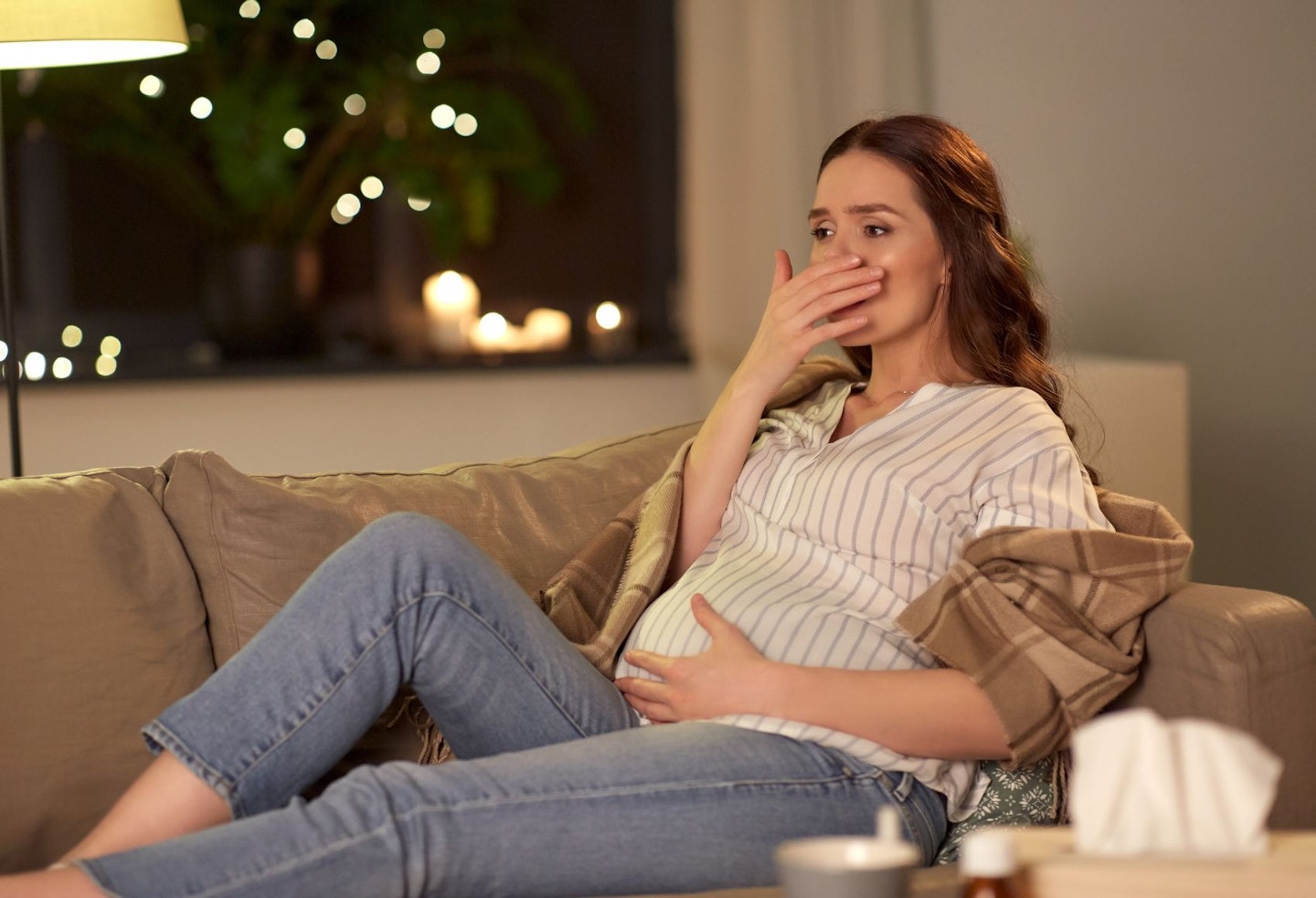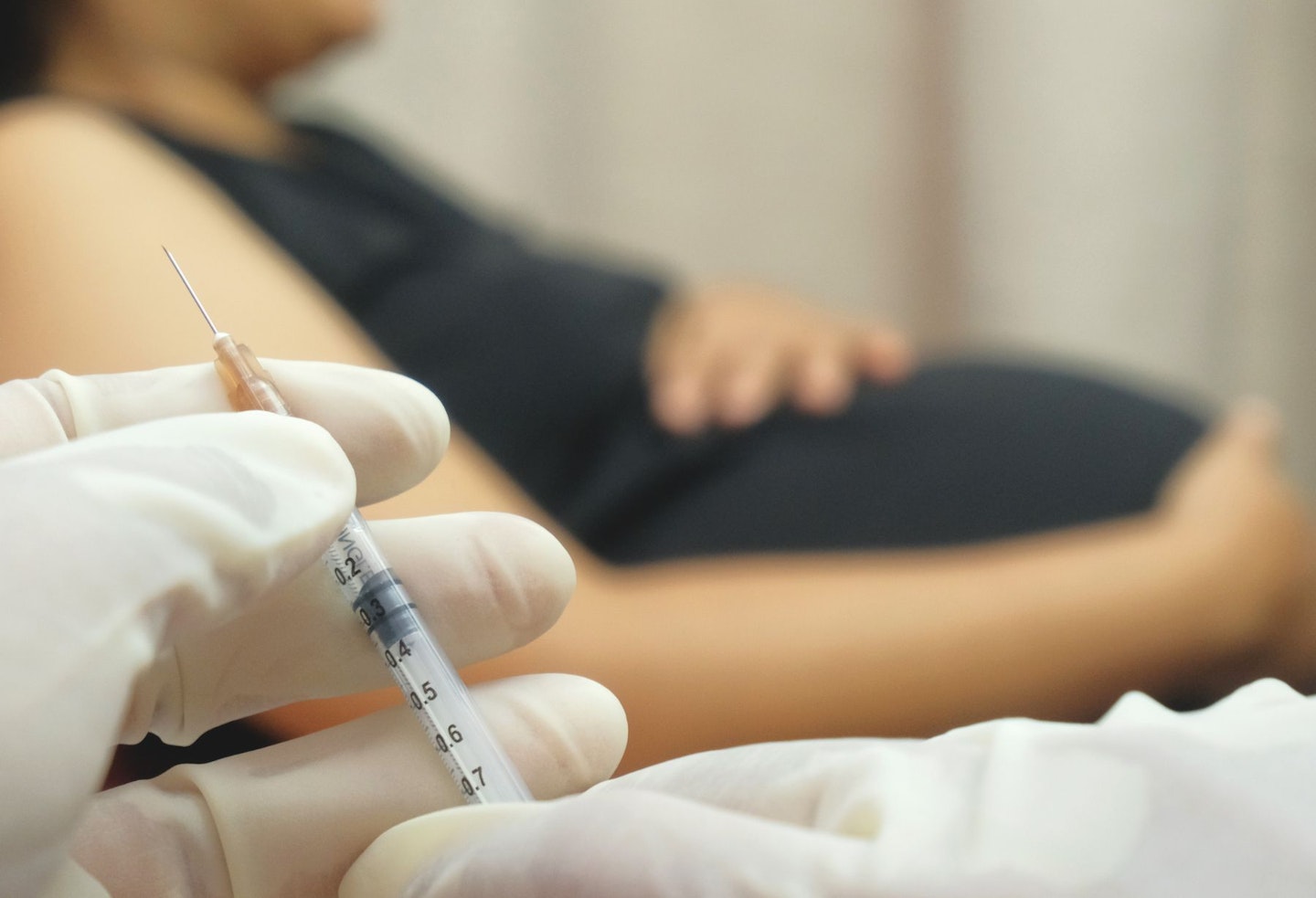
Medically Reviewed by: Lesley Bland BA (Hons), BSc (Hons) Midwifery Studies
With whooping cough cases on the rise, you might be wondering how to protect your baby or what signs to watch for. A persistent cough can be worrying, especially when infections are spreading, so knowing how to recognise, treat, and prevent whooping cough is important.
Maybe you've heard about the vaccine for pregnant women and want to know how it helps protect newborns. The NHS strongly urges expectant mothers to get vaccinated, explaining, “Whooping cough can be serious for babies and may lead to complications resulting in hospitalisation and even death.” The good news? Getting vaccinated during pregnancy can help shield your baby in those vulnerable first weeks.
To help you understand everything about whooping cough including symptoms, treatment, and the pregnancy vaccine, we spoke with Charlie Blyth, founder of The Healthy Child Co. and a specialist public health nurse (health visitor). Here’s what you need to know.
What is whooping cough?

Whooping cough, also known as pertussis, is a bacterial infection of the lungs and airways. It spreads very easily and can be serious. The NHS explains, “Whooping cough is an infection of the lungs and breathing tubes. It spreads very easily and can be serious. It's important for babies, children, and anyone who's pregnant to get vaccinated against it.”
Whooping cough in babies
If your baby has whooping cough, you’ll likely notice a persistent dry cough that’s hard to shake off.
Health visitor Charlie explains, “Initially, whooping cough resembles a common cold, presenting with symptoms such as a runny nose and sore throat. After about a week, more severe symptoms develop, including intense coughing bouts. These can last for several minutes and are often more severe at night. The characteristic 'whooping' sound is a distinctive gasp for breath between coughs, although this may not occur in young babies.”
For babies under six months, symptoms can be particularly severe. These may include difficulty breathing, pauses in breathing (apnea), and in some cases, a baby might even turn blue or grey due to lack of oxygen after a coughing fit.
In fact, Charlie notes that the typical "whoop" sound may not even be heard in babies this young. The NHS says, “Whooping cough is a highly infectious, serious illness that can lead to pneumonia and brain damage, particularly in young babies.”
How to protect babies from whooping cough

Babies should receive a vaccination against whooping cough when they are eight, 12 and 16 weeks old. However, this does leave a window of opportunity for the infection to reach the baby from the time they are born up to eight weeks of age. There is also a whooping cough vaccine which you can have during pregnancy, to protect your baby from birth.
Whooping cough vaccination in pregnancy
If you’re pregnant, you can get vaccinated for whooping cough. But when should you have whooping cough vaccine in pregnancy? You should receive the whooping cough vaccine between 16 and 32 weeks of pregnancy to help protect their baby after birth.
This vaccination helps transfer antibodies to the unborn baby, providing them with some protection in the early weeks of life. Babies should also receive their vaccinations starting at eight weeks old to build immunity early.
The vaccine you'll be given is called Boostrix IPV and protects against:
• whooping cough
• polio
• diphtheria
• tetanus
It's similar to the pre-school booster that's routinely given to children before starting school.
Don't worry if you have missed this window, as it's possible to still have it all the way up until you go into labour, although your baby will be less likely to receive the protection from your antibodies the later you have it. It's still worth having the vaccine even at this later stage, as it will protect you from whooping cough so that there's no risk of you passing it onto your child when they're born
Is the whooping cough vaccine safe for pregnant women?

If you’re concerned about getting the whooping cough vaccine during pregnancy, here’s some reassuring information:
• The NHS states, “There’s no evidence to suggest that the whooping cough vaccine is unsafe for you or your unborn baby.”
• The vaccine has been routinely used for pregnant women in the UK since October 2012, and the Medicines and Healthcare products Regulatory Agency (MHRA) carefully monitors its safety.
• A study by the MHRA, involving around 20,000 vaccinated women, found no risks to pregnancy or babies.
Additionally, research shows that vaccinating pregnant women is very effective in protecting babies from whooping cough during their first few weeks of life. In fact, the NHS says, “Babies born to women vaccinated at least a week before birth had a 91% reduced risk of becoming ill with whooping cough compared to babies whose mothers were not vaccinated.”
Side effects of whooping cough vaccine during pregnancy
Side effects you may experience after having the whooping cough jab during pregnancy may include:
• mild swelling, redness or tenderness in your upper arm
• irritation at the injection site
• high temperature
• nausea
• loss of appetite
• tiredness
• headache
There is no need to be concerned though, as serious side effects are extremely rare.
How is whooping cough diagnosed?
Charlie says, “If whooping cough is suspected, especially in babies under six months or individuals with worsening symptoms, it's essential to seek medical advice promptly.”
Healthcare professionals may diagnose whooping cough based on clinical symptoms and confirm it through laboratory tests, such as:
Bacterial culture: Identifying Bordetella pertussis from a sample
PCR testing: Detecting bacterial DNA
Serology: Identifying antibodies against the bacteria
Whooping cough symptoms: How do I know if I've got a whooping cough?
Charlie explains that initially, “whooping cough often resembles a common cold with symptoms like a runny nose and sore throat. However, after about a week, more severe symptoms develop, including:
Intense coughing bouts: These can last for several minutes, often becoming worse at night.
"Whooping" sound: A distinctive gasp for air between coughs, although this may not always occur in young babies or some adults.
Vomiting: Coughing fits may lead to vomiting due to their intensity, and sometimes thick mucus may be brought up.
Facial discolouration: After coughing fits, a baby may turn blue or grey, indicating difficulty breathing."
Charlie also notes, “In infants under six months, symptoms can be particularly severe, including pauses in breathing (apnea). The characteristic 'whoop' sound might not even be present in this age group.”
Call your GP if...
If coughing is causing your baby’s face to drain of colour and give his lips a blue tinge. It is a sign that they are not taking in enough oxygen, which can be dangerous. If your baby is off his feeds and hasn’t produced a wet nappy in over 12 hours, you should also contact your doctor.
Is whooping cough contagious?
"Whooping cough is highly contagious, and the contagious period depends on treatment," Charlie says.
Without antibiotics
Individuals are contagious for up to 3 weeks after coughing begins.
With antibiotics
If antibiotics are administered within two weeks of the cough's onset, the contagious period is reduced. In this case, you should stay away from work, school, or daycare until 48 hours after starting antibiotics.
Do you have to isolate with a whooping cough?
To prevent transmission, Charlie advises that "individuals diagnosed with whooping cough should stay at home and avoid close contact with others during the contagious period."
She advises additional precautions, which include:
Hygiene measures
"Regular handwashing, covering the mouth and nose when coughing or sneezing, and disposing of tissues promptly can help reduce the spread of the bacteria."
Vaccination
"Ensure that all household members are up-to-date with their whooping cough vaccinations, providing a layer of protection, especially for infants who are not yet fully vaccinated."

Protecting babies from whooping cough
Infants, especially those under six months, are at higher risk of severe complications, according to Charlie. Protecting them includes:
Maternal vaccination: "Pregnant women are advised to receive the whooping cough vaccine between 16 and 32 weeks of pregnancy. This helps transfer antibodies to the unborn baby, providing protection during the first weeks of life."
Timely infant vaccination: "Babies should receive their routine whooping cough vaccinations starting at 8 weeks old to develop early immunity."
Minimising exposure: "Limit infants’ contact with anyone showing cold-like symptoms or persistent coughs. Ensure that caregivers and family members are vaccinated to reduce the risk of transmission."
Whooping cough treatment
Treatment for whooping cough includes:
Antibiotics
If diagnosed within the first two weeks of symptoms, "a course of antibiotics may be prescribed to eliminate Bordetella pertussis bacteria and reduce the contagious period. It's important to complete the full course as prescribed," Charlie explains.
Hospital care
Infants under six months old and individuals with severe symptoms may require hospitalisation for close monitoring and supportive treatments.
Home care: For milder cases, Charlie suggests rest and staying hydrated. “Drinking plenty of fluids can help soothe the throat and prevent dehydration,” she says.
About the expert
Charlie Blyth has also provided her expert advice and medically reviewed this article. Charlie is the founder of The Healthy Child Co and a dedicated specialist public health nurse (Health Visitor) with over 13 years of experience in the NHS, including 9 years as a health visitor, where she supported hundreds of families in the community. With a deep commitment to child health and development, Charlie is passionate about challenging outdated parenting methods and advocating for evidence-based practices to promote responsive parenting and positive child growth.
About the author
Proud aunt to her teen niece, Zara Mohammed is a Digital Writer for Mother&Baby. She has 10 years freelance writing experience creating lifestyle content for various platforms, including pregnancy, women’s health, parenting, child development and child mental health, plus lots of fun seasonal family articles and celebrity news.
